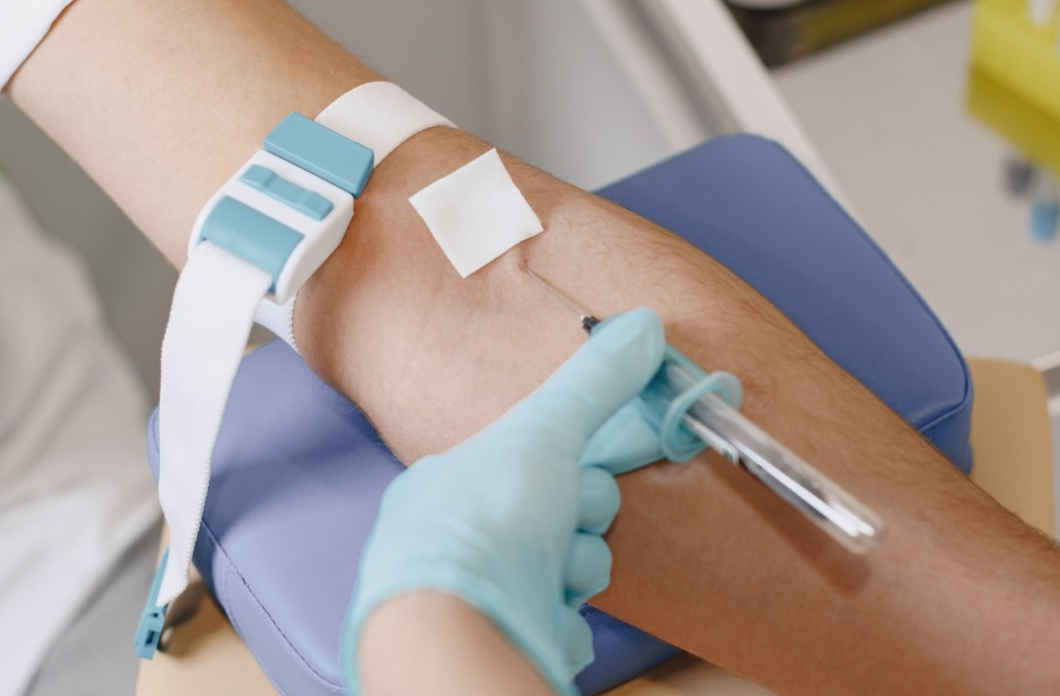How Micronutrient Deficiencies Affect Women’s Bone, Heart, and Reproductive Health

Women’s health is a complex interplay of various physiological systems, each influenced by key micronutrients. As women age, they become more susceptible to conditions such as osteoporosis, cardiovascular disease, and fertility challenges. Micronutrient deficiencies can significantly contribute to these risks, making it crucial to understand the role of essential nutrients like calcium, vitamin D, iron, and omega-3 fatty acids in maintaining optimal health.
While lifestyle factors such as diet, exercise, and stress management play a role in disease prevention, early detection of deficiencies through laboratory testing is equally important.
The Impact of Micronutrient Deficiencies on Women’s Health
1. Bone Health: Preventing Osteoporosis and Fractures
Osteoporosis is a silent condition that weakens bones over time, increasing the risk of fractures. Women, particularly postmenopausal women, are at higher risk due to hormonal changes that reduce bone density. Several key nutrients play a role in maintaining strong bones:
- Calcium: The primary mineral in bone structure, calcium is essential for bone strength. Low levels can lead to bone thinning, increased fracture risk, and muscle cramps.
- Vitamin D: Facilitates calcium absorption and supports bone mineralization. A deficiency can result in weaker bones, chronic pain, and an increased risk of fractures.
- Magnesium: Helps regulate calcium and vitamin D metabolism. Low levels may contribute to bone loss and osteoporosis.
2. Heart Health: Reducing Cardiovascular Risk
Cardiovascular disease remains a leading cause of death among women. Many risk factors, including high blood pressure, high cholesterol, and inflammation, are influenced by micronutrient status:
- Iron: Essential for oxygen transport in the blood. Deficiency can lead to anemia, fatigue, and an increased heart disease risk.
- Omega-3 Fatty Acids: These healthy fats help reduce inflammation, lower blood pressure, and support overall heart function.
- Vitamin K2: Plays a role in preventing calcium buildup in arteries, reducing the risk of atherosclerosis.
A Cardiac Markers Test can help evaluate heart health by measuring key indicators such as cholesterol levels, inflammation markers, and iron status, allowing for early intervention when necessary.

3. Reproductive Health: Supporting Fertility and Hormonal Balance
For women planning to conceive or struggling with hormonal imbalances, nutrient deficiencies can significantly impact reproductive health:
- Folic Acid (Vitamin B9): Essential for fetal development and reducing the risk of neural tube defects. Low levels can affect egg quality and increase pregnancy complications.
- Iron: A deficiency can contribute to irregular menstrual cycles, fatigue, and infertility.
- Vitamin D: Plays a role in ovarian function and hormone production, making it essential for conception and maintaining a healthy pregnancy.
A Fertility Test measures reproductive hormone levels, offering insight into potential fertility challenges and guiding women in optimizing their reproductive health.
4. Genetic Health: Understanding Hereditary Cancer Risks
Women with a family history of breast, ovarian, or other hormone-related cancers may benefit from Hereditary Cancer Testing (CGX). This test helps identify genetic predispositions to cancer, enabling early preventive measures and personalized medical strategies.
The Importance of Early Detection Through Diagnostic Testing
Many micronutrient deficiencies develop silently, often showing symptoms only when the deficiency has progressed. Regular screening allows for:
- Early intervention and prevention of conditions such as osteoporosis, cardiovascular disease, and fertility challenges.
- Personalized treatment plans, including targeted supplementation and dietary modifications.
- Improved long-term health outcomes, helping women maintain strength, energy, and overall well-being.
How NovaLab’s Testing Services Support Women’s Health
NovaLab offers specialized diagnostic tests designed to assess key aspects of women’s health:
- Measures bone density markers, calcium levels, and vitamin D status to assess overall bone strength.
- Identifies osteoporosis risk, potential bone mineral deficiencies, and early signs of bone loss.
2. Cardiac Markers Test
- Evaluates cholesterol profiles, inflammatory markers (such as C-reactive protein), and iron levels.
- Detects early signs of heart disease, arterial inflammation, and cardiovascular risk factors.
3. Fertility Test
- Measures levels of estrogen, progesterone, luteinizing hormone (LH), follicle-stimulating hormone (FSH), and thyroid function markers.
- Assists in diagnosing hormonal imbalances, ovulatory issues, and potential barriers to conception.
4. Hereditary Cancer Testing (CGX)
- Screens for specific genetic mutations linked to breast, ovarian, and other hereditary cancers.
- Provides a personalized risk assessment to guide early prevention and medical decision-making.

Convenience with NovaLab’s Mobile Phlebotomy Services
Recognizing the challenges of busy schedules and accessibility, NovaLab provides mobile phlebotomy services, allowing women to receive testing from the comfort of their own homes. This service eliminates the need for travel, making health monitoring more convenient and stress-free.
Metabolism influences energy production, weight management, and disease prevention. The Metabolic Health Test provides insights into:
- Blood Sugar Regulation – Monitors glucose metabolism and insulin sensitivity to detect early signs of diabetes risk.
- Lipid Profile – Evaluates cholesterol and triglyceride levels to assess cardiovascular health and disease risk.
- Metabolic Efficiency – Identifies factors affecting weight gain, energy production, and overall metabolic function.
Steps to Maintain Optimal Health
While diagnostic testing is essential, proactive lifestyle choices can further support bone, heart, and reproductive health:
- Follow a nutrient-rich diet: Incorporate foods high in calcium, vitamin D, omega-3s, and iron to support essential bodily functions.
- Engage in weight-bearing exercise: Activities such as strength training, walking, and yoga help maintain bone density and cardiovascular fitness.
- Monitor micronutrient levels regularly: Periodic testing ensures early detection of deficiencies and timely interventions.
- Manage stress effectively: Chronic stress can impact heart health and hormone balance; techniques such as meditation and deep breathing can help.
- Consult a healthcare professional: If experiencing persistent symptoms such as fatigue, irregular cycles, or bone pain, seek medical guidance for appropriate testing and treatment.
Women’s health is deeply interconnected with micronutrient levels, impacting bone strength, cardiovascular function, and reproductive health. Addressing deficiencies early through targeted testing can help prevent long-term complications and promote overall well-being. NovaLab offers comprehensive diagnostic tests and mobile phlebotomy services, ensuring that women have access to convenient, accurate, and proactive healthcare solutions.
By taking a preventative approach, women can empower themselves to maintain strong bones, a healthy heart, and optimal reproductive function, enhancing their quality of life for years to come. If you suspect a nutrient deficiency or want to assess your health status, consider scheduling a diagnostic test with NovaLab today.
